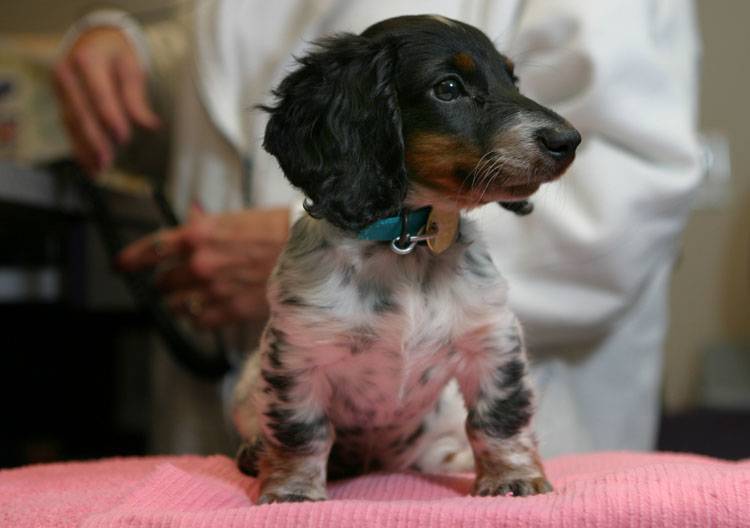Spaying and Neutering Facts
According to the Humane Society of the United States, approximately 6 to 8 million cats and dogs enter one of the approximately 6,000 U.S. animal shelters each year. Of these animals, an estimated 3 to 4 million are euthanized. An estimated 25 percent of these animals are purebred. A veterinary assistant can inform you of the benefits of spaying and neutering pets.
Many of the animals euthanized in animal shelters are perfectly healthy and young. These animals are usually the offspring of a beloved family pet who had an unintentional litter, and, as is common in most cases, the owner wasn’t able to find homes for each puppy or kitten. Unfortunately, there are more homeless animals than there are people willing to provide them with loving homes.
A fertile dog may produce two litters of puppies per year with an average of six to 10 puppies per litter. Cats can produce up to six kittens per litter and have up to three litters per year. Spaying and neutering is the only 100 percent effective way of controlling the ability of dogs and cats to reproduce. Spaying or neutering your pet will help you avoid adding to the pet overpopulation problem.
Benefits of Spaying and Neutering
Spaying or neutering your female pet can:
• Minimize mess since cats won’t go into heat.
• Eliminate the risk of diseases like pyometra (pus-filled uterus), uterine cancer and ovarian cancer.
• Drastically reduce the risk of mammary gland tumors (cancer of the mammary gland).
• Eliminate risks associated with pregnancy like false pregnancy, retained placenta, prolapsed uterus, dystocia (difficulty giving birth), and eclampsia (all of which are extremely expensive to treat and may result in the death of the mother).
RELATED: Vaccine-Associated Fibrosarcoma in Cats
Spaying or neutering your male pet can:
• Reduce stress and anxiety in dogs and cats.
• Decrease the risk of a male pet running away or roaming when they sense a female in heat.
• Eliminate the risk of testicular cancer.
• Drastically reduce the risk of an enlarged prostate or prostate cancer. (Over 80 percent of unneutered male dogs develop some form of prostate disease.)
“There are many misconceptions about spaying and neutering,” says Ashlie Herring, a veterinary technician. “For instance, some people think pets who have been spayed or neutered become fat or lazy. It is up to the owner to make sure her dog or cat gets fed a healthy diet and has regular exercise.”
Surgical sterilization won’t affect the physiological development of a dog or cat. There is no scientific data that supports the theory that spaying or neutering affects a pet’s physiological or psychological development. Again, it is up to the owner to provide her pet with adequate nutrition and the loving care that is necessary to help her pet grow into a happy and healthy adult.
READ MORE: Poisonous Plants for Dogs and Cats





